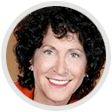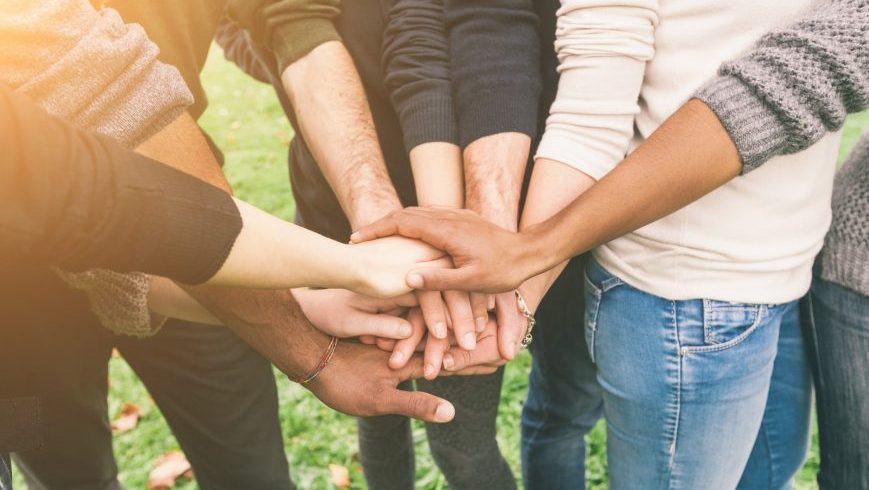What gives life meaning and purpose? Family? Friendships? Grades? Family and friends, of course. However, when it comes to academics, many students find emphasis on grades and scores to be a necessary evil, something they must achieve. Yet the question of personal fulfillment may be fleeting.
While traveling globally and meeting students at all levels whether pre-collegiate or in higher education, I often ask the question, “How many of you look out the window and wonder Why am I learning this?” By posing a similar question to teachers and faculty, “How many of you wonder, Why am I teaching this?” hands fly up. What a response! Would all participants benefit more deeply from the education process if a purpose was driving the learning? A larger purpose? How about this one: Applying what we are learning to the common good. When the academic and service connection is deliberate and includes student initiative, authenticated needs, reciprocal collaborations with community partners, and meaningful reflection, we call this service learning.
The pairing of education with the purpose of meeting verified community needs has likely been going on as long as education itself. There have always been teachers who recognize this imperative. Personally, my first teaching position erupted into service as students observed the onslaught of Dutch elm disease threatening the trees in their backyards. Their insistence on taking action convinced all the teachers to frame what we had on our academic agendas around this situation. High level science research with university students as partners gave these high school youth an incentive to work harder with a sense of urgency, true intrinsic motivation. Their university counterparts willingly assumed the role of mentors that kept them more committed to their course work. Everyone cared about outcomes that went well beyond grades. They were saving trees
Plant trees. They give us the two most crucial elements for our survival: oxygen and books
— A. Whitney Brown
Now we are experiencing a global groundswell of service. The issues we face as a planet have risen to a level that calls more of us to action. We can all be engaged in learning about and addressing critical issues—hunger, climate change, population migration, loss of habitat, illiteracy, and more—while contributing to the betterment of themselves and others. Students at all levels who are cognizant of the issues and have problem-solving abilities to address them, matter. When students lack the skills then all educators need to take notice and provide what is needed to transform youth into advocates for the social well-being of our environment, our communities, and indeed this planet we share. Providing the requisite skills and knowledge to do this vital work in local communities and larger world adds relevance to the process of education.
With academic-rich service learning experiences, students are doing astounding work as they prepare food for people in crises, repair coral reefs, protect animals, and spend time with otherwise lonely elders. When they care about the subject matter and have authenticated a need, students discover intrinsic motivation. This is key.
Words fill classrooms and books and computer screens. We can dialogue, write papers, and make suppositions about what is possible. Yet, when we take words and transform them into ideas, and these ideas then transform into action—what are we capable of?
Psychologist Robert Sternberg wrote an exceptional article called What is an Expert Student? In this article he commits to the idea that to reach intelligence, students need to engage in analytical, creative, and practical thinking. One or two of these alone will not be sufficient. He then adds, “When schools teach for wisdom, they teach students it is important not just what you know, but how you use what you know . . .” He then adds a statement that has been a personal mantra of mine since first hearing these words: “Wisdom, the opposite of foolishness, is the use of successful intelligence and experience toward the attainment of a common good.”
How many of you think we need more wisdom in the world right now? If you are nodding, then making the endpoint of our education manifest with tests and grades will likely be terribly insufficient. Bringing learning to life through using what we study in class to assist struggling students gain skills and confidence, or writing informative brochures about local history, or creating healthy food options in locales where scant vegetables are available only at corner stores—could this be what education is really about?
Why does service matter? With service learning ideas becomes a reality, the excitement becomes palpable. The contributions made—significant. What I see most is students discover who they are as their interests, talents and skills connect with the academic content and skills and learning comes to life. Service creates purpose for learning. And students and the exceptional educators who engage them prove to be valued contributors for our collective well-being, now and in the future.
Are you ready to make your mark volunteering? Let NobleHour help you find meaningful opportunities, track your service hours, and measure your impact!
Since 2007, NobleHour has proven to be the volunteer management solution for organizations across the nation. With its robust online platform, NobleHour enhances community engagement with a variety of innovative and transformative tools for finding, tracking, and measuring volunteer, service‐learning, and community service initiatives. With offices in Lakeland, FL, and Portland, OR, the NobleHour team is dedicated to empowering good in communities across the country.
By NobleHour Special Contributor:

Cathryn Berger Kaye, M.A
Consultant, NobleHour
Contributing Writer
Los Angeles, CA
Cathryn is president of CBK Associates, International Education Consultants., The company provides program development,highly engaging workshops, and keynote addresses on service learning, literacy, engaged teaching, and school culture. Cathryn is the author of The Complete Guide to Service Learning: Proven, Practical Ways to Engage Students in Civic Responsibility, Academic Curriculum, & Social Action (Free Spirit Publishing, 2010), and Going Blue: A Kid’s Guide to Protecting Our Oceans and Waterways, with Philippe Cousteau and EarthEcho International.
